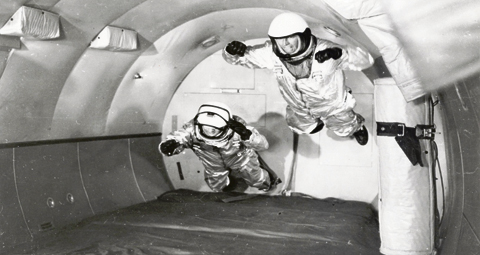November 15 | ![]() 0 COMMENTS
0 COMMENTS ![]() print
print

Handling resentment in our lives
By Fr Ronald Rolhesier
Many of us, I suspect, know about the work of the renowned anthropologist, Rene Girard and the dissemination of his insights through the work of his student, Gil Bailie. With gratitude to them, I pass along one of their insights, an invaluable look at how we try to handle resentment in our lives.
When astronauts journey into space, their capsules are equipped with a machine that gets rid of the carbon dioxide they produce as they breathe. If that machine breaks down, they are in trouble, as was shown in the film Apollo 13. Traveling inside a space capsule is possible only if there’s a machine constantly getting rid of the carbon monoxide being produced. That’s also true for our human journey. All groups constantly produce the suffocating gas of resentment and jealousy. Resentment is present inside of virtually every human community and family because, as Girard puts it, we’re ‘mimetic,’ which means, among other things, that we always want what others have. This inevitably creates tension, resentment, jealousy, and conflict. It’s no accident that two of the Ten Commandments have to do with jealousy.
What’s the machine inside human life that tries to rid us of the carbon monoxide of jealousy and resentment? Anthropologists tell us that we try to rid ourselves of tension by scapegoating. How does scapegoating work and how does it get rid of tension?
Consider this example: Imagine going out for lunch with a number of your colleagues or co-workers. There will be, as is always the case, some personality conflicts and tensions among us. But we can have a harmonious and even fun-filled lunch together. How? By talking about certain people who aren’t there, whom we all dislike, whom we all consider eccentric or difficult, and whom we all judge to be a negative or eccentric presence. And so we talk about them: how terrible the boss is, how difficult a particular colleague is, how eccentric one of our co-workers is. In doing that, in highlighting how different or negative to us someone else is, we make our own tensions with each other disappear for that moment. That is the essence of scapegoating. We create community with each other by projecting our tension onto someone else. By exiling that person from our community we create community with each other; but our unity is then based upon what we are against rather than upon what we are for.
All groups, until they reach a certain level of maturity, do this. And we do the same thing to cope with tension in our private lives. It works this way: We get up some morning and, for a myriad of reasons, feel out sorts, weighed down by a mixture of free-floating frustration, anxiety, and anger. So what do we do? We find someone to blame. Invariably we will soon pick someone (in our family, at our place of work, or a politician, or a religious figure) on whom to place that tension. Someone whom we consider difficult, or ignorant, or politically wrong, or morally corrupt, or religiously bad will soon bear the weight of our tension and resentment.
Moreover, not only will we project our tension onto someone, we will invariably ‘sacralise’ the indignation we feel, that is, we will project our tension and anger onto that other not just because he or she is different from ourselves or because we consider him or her difficult, ignorant, or lazy, but especially because we feel ourselves as morally superior to him or her: we’re right and he’s is wrong; we’re good and she’s bad. Thus our resentment towards that person is a holy resentment, necessary for the cause of God, and truth, and goodness. Such are all crucifixions, hangings, and excommunications. That’s the normal human machine to rid ourselves of resentment inside our communities and inside ourselves. Jesus was Crucified precisely because a community did this to him, and did it to him for holy reasons.
But, the ultimate victim of scapegoating, Jesus, invites us to something higher, and he models that for us in the way he died. Jesus took away tension by transforming it rather than by transmitting it. What Jesus does for us is comparable to what a water-purifier does. A water-purifier takes in water containing dirt, toxins, and poisons. It holds the impurities inside of itself and gives back only pure water. Jesus, as the Lamb of God, took away our sins and purified us in his blood not by some divine magic but, precisely, by absorbing and transforming our sin. Like a water-purifier, he took in hatred, held it, transformed it, and gave back love; he took in jealousy, held it, transformed it, and gave back affirmation; he took in resentment, held it, transformed it, and gave back compassion; and ultimately, he took in murder, held it, transformed it, and gave back forgiveness. That’s the Christian design for taking tension and resentment out of our lives.
And, as Soren Kierkegaard suggests, we shouldn’t just admire what Jesus did here, we should imitate it.
—Fr Ronald Rolheiser is a Catholic priest and member of the Missionary Oblates of Mary Immaculate. He is president of the Oblate School of Theology in San Antonio, Texas. Visit his website at www.ronrolheiser.com











